Close

Stuck with half-completed work and an unresponsive contractor? Understanding what to do when a contractor doesn’t finish the job is essential in regaining control of your project. This article delivers concrete steps you can take immediately, from initiating a constructive dialogue to exploring legal actions without overwhelming you with jargon or unnecessary details.

The first step in addressing unfinished contractor work is to maintain open communication, schedule a face-to-face meeting, specifically identify issues, and propose solutions.
Document all interaction, maintain evidence of incomplete work, and save relevant communications and financial records to support your case in potential disputes or legal proceedings.
If the issue cannot be resolved directly with the contractor, explore alternative dispute resolutions, such as mediation or arbitration, or take legal action by filing a complaint or proceeding to small claims court.
If you’re in a situation where your contractor hasn’t completed the job, your first step should be to address the unfinished work with them. Maintaining open lines of communication is vital. Initiating a conversation about the unfinished contract work can provide clarity and possibly a way forward. The key is to approach the situation in a cooperative manner and try to resolve it amicably.
Let’s delve into how you can effectively address this issue.
Rather than impulsively starting a phone conversation filled with accusations, make sure to arrange a meeting with the contractor. This face-to-face interaction provides an opportunity to discuss the unfinished contract work openly.
Before the meeting, prepare a comprehensive list of renovation project “needs” and “wants”, and determine your desired and maximum budget.
Compile a list of specific questions to ask the contractor during the meeting, such as why the job is not finished and when they can finish the job. Assess the contractor’s professionalism, timeliness, and attentiveness to your ideas and goals in the meeting. This assessment can give you a clear indication of their future communication habits.

During your discussion with the contractor, make sure to pinpoint the specific issues that have led to the incomplete work. These could range from:
poor communication
a lack of resources
illness or injury
material shortages
However, it’s also essential to consider factors outside the contractor’s control.
Recognizing these issues can help create a more objective understanding of why the work is incomplete and prevent the same negative outcomes in the future.
After identifying the problems, you should then propose potential solutions. This could include:
Setting a firm completion date for the unfinished contract work falls
Requesting a partial or full refund based on the severity of the incomplete job
Insisting on enforcing the contractual terms, requiring the contractor to complete the work as previously agreed
If the contractor has installed goods improperly or performed services inadequately, suggest corrections.
While you’re trying to resolve the issue with your contractor, make sure to keep a record of all communications and evidence. This includes saving emails and texts, taking photographs of the incomplete work, and retaining payment records and contracts.
This documentation can serve as evidence should you need to seek legal remedies or file a complaint.

In today’s digital age, we tend to communicate mainly through online or digital mediums. This can be advantageous when dealing with unfinished contract work. Be sure to save all relevant emails and text messages that show discussions and disagreements about the project.
You can also send an email to the contractor summarizing previous communications to ensure there is a clear record of what has been discussed.
Photographs can serve as powerful evidence of the contractor’s unfinished or unsatisfactory work. Take pictures of the specific areas where the work is incomplete or not up to standard. These photos can serve as a visual record of the project’s status and can be valuable in any future legal proceedings.
In addition to emails, texts, and photographs, you should keep a record of all payment transactions and contracts related to the project. These documents can provide proof of the agreed-upon terms and the payments you’ve made.
They can also be useful in identifying any breaches in the contract by the contractor.
If you’re unable to resolve the issue with your contractor, exploring alternative dispute resolution options might be a necessary step.
Mediation is a process where a neutral third party, known as a mediator, facilitates a discussion between the two disputing parties to help them reach a mutually agreeable resolution. This process can often lead to a satisfactory outcome for both parties, without the need for costly and time-consuming legal action.
Another option is arbitration, where an impartial arbitrator makes a decisive, legally binding resolution to the dispute. This process is more formal than mediation and involves the presentation of evidence and legal arguments, similar to court procedures. The decision of the arbitrator can be enforced through the courts, providing a swift and definitive conclusion to the dispute.
If all other methods fail, you may consider pursuing action through the small claims court system. Small claims court is designed to seek compensation for damages caused by situations such as:
unfinished contractor work
faulty products or services
property damage
personal injury
The best part is that you don’t need a lawyer to represent you in small claims court.
Once all legal matters have been sorted out, you can proceed to hire a new contractor to finish the project. This process should involve careful research and consideration to ensure you find a reliable and reputable professional.
Begin your search for a new contractor by collecting recommendations from friends, family, and trade associations. These recommendations can provide a solid starting point in your search for a new contractor.
Apart from personal recommendations, checking online reviews and validating the contractor’s credentials is also necessary.
This includes confirming that they are a licensed and bonded contractor, fully insured.
Communicate your concerns calmly and set a specific completion date with your builder to ensure they stay on track with the project. Taking an active role in pushing for timely completion is important to keep the builder focused.
You should pay the builder for any work they’ve completed, but you can negotiate a discount for any inconvenience caused.
To document evidence of unfinished work, save all communications, take photos, and keep payment records and contracts to support your claim. These will provide a strong basis for your case.
Alternative dispute resolution encompasses methods such as mediation and arbitration. It provides an alternative to the litigation process.
At Elliott Construction, we provide a vast amount of home construction services and products to the North West. We build new homes in Cheshire, and our Cheshire builders are available in the following areas: